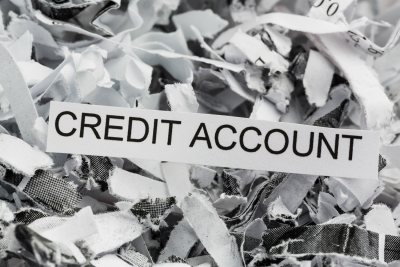… How to locate bank accounts legally
by Cynthia Hetherington, MLS, MSM, CFE, CII
 Bank accounts for sale?
Bank accounts for sale?
Every day I receive advertising that offers to find someone’s bank account information completely legally and FCRA compliant. I still haven’t figured out how this is possible—because it isn’t.
It’s no secret that bank account information isn’t as accessible to legal professionals, credentialed investigators, and asset due diligence researchers as other personal information. If it were merely expensive or inconvenient to obtain this information, professional information aggregators such as LexisNexis and Thomson Reuters would be able to hawk asset databases at their conference vendor booths, and we’d all be lining up in droves to subscribe.
After all, nothing tells a story like someone’s financial information. But at times, it can feel like trying to find a needle in a haystack.
The Legal Nitty Gritty
As investigators, we are governed by foreign and domestic ethics standards and laws. Yet, everyday an investigator, attorney, or accountant appears in the news for crossing the line using the Internet to research, contact, or connect with their target. They find themselves using technology workarounds, finding holes in the system, or outright hacking to gain information—often enough obtaining financial information illegally.
At Hg, we not only follow the letter of the law in our investigations. We also train other investigators, security professionals, attorneys, accountants, and auditors on the legal parameters for conducting investigations, for a lot has changed in the last two decades, much less the last five years!
20 years ago, before online banking, an investigator would look into all the banks in a 20-mile radius of the subject and likely locate that subject’s financial institution. Today, however, ubiquitous online banking means your subject can bank with the local community bank or use a virtual banking system without ever entering a brick-and-mortar office. United States laws define legal ways to obtain bank account information. Within the limits of U.S. laws, there are some ways to obtain bank account information. The following are some old school methods developed by the National Check Fraud Center—including some new techno ideas—for legally obtaining bank account information.
Subpoena the Subject
Most cases that involve locating assets will also involve court matters—fraud, divorce, business separation, etc. An attorney can file a court order requiring the subject to release an accounting of all bank account records.
Go Shopping
If the subject runs a service or has an online or physical business, engage in a commercial transaction. Purchase your item with a check and wait for the statement to arrive at the end of the month to view the bank account number on the back of the check. If the business is online or operates through an online auction site such as eBay, send an email to the owner offering to pay in advance for the product or service and then send your check.
If the subject runs a service group, hire it to perform a service. If you think your subject will not fall for this method, use a third party in your place. Hire another investigator for undercover shopping; tell him or her to make the purchase with a check. If you are hiring your subject for a service—landscaping, manicures, repaving, etc.—make sure your undercover investigator is comfortable with the assignment.
An Hg Case Study: We were tracking down the never-mentioned bank accounts of a divorcing spouse for a client. He was a local landscaper, so hiring him wasn’t unusual. I decided to help clean up the neighborhood by hiring him to cut the grass on a foreclosed property on my block for $30. He had no idea it wasn’t my property. I paid him $30 with a check for the work. When I received my next bank statement, I had the subject’s never-mentioned bank account information on the back of my cleared check.
Uniform Commercial Code Documents and Records
A search should be made of Uniform Commercial Code (UCCs) filings. UCC documents are business loans outlining items secured by a bank for the purposes of lending money. The bank that loaned the subject money may be the same bank he or she uses personally. It only makes sense: The subject will likely have a better chance of obtaining a loan from a bank he or she already has a banking relationship with. Once the subject’s bank is identified, you have a better chance of obtaining the subject’s bank account.
Keep in mind the purpose of a UCC-1 filing: As per the New Jersey Division of Revenue, “A UCC-1 records and protects a secured party’s interest in the collateral offered by a debtor for a loan. In essence, the UCC-1 gives public notice relative to the debtor-secured party relationship and the collateral involved.”
A UCC-1 filing provides notice to the public that the secured party has an interest in the subject’s property. Typically, this is the secured party loaning money to the debtor. The subject fills out a loan application and financial statement, which should also contain the subject’s bank account information.
UCCs are easily located via Secretary of State or State Business Registry databases found online. Public record aggregators also offer UCC searches for a nominal fee.
Checks between the Secured Party & the Subject
In a loan situation, the bank will issue a check to the subject. The subject will deposit the check in his or her bank account. As the check makes its way back to the issuing bank, the subject’s bank account number will be on the back of the check issued by the bank. If you subpoena the secured party for a copy of this check, it will show the document trail—including the name and account number of the bank into which the subject actually deposited the check.
Additionally, the subject is obligated to pay the secured party back for its loan each month, possibly with a check. Subpoena the targeted bank for any loan applications and/or financial statements of the debtor, any checks the bank issued to the debtor, and the subject’s checks over a period of several months.
Landlords and Rental Properties
Subpoena the subject’s previous landlord for a copy of the rental application to see where the subject banked. Most people are creatures of habit: Once a banking relationship is established, it generally continues uninterrupted. Additionally, the current landlord likely has a rental application on file that show the subject’s bank account.
If the subject’s rental application information is outdated, try to obtain the security deposit/cleaning refund check that was given to the subject/tenant upon move out. The subject may have deposited that check in his/her bank account. The landlord or the landlord’s bank will have a copy of that check; the subject’s bank account information should be on the check’s backside.
During the rental period, the subject/tenant likely paid rent by check. The landlord might claim he does not have access to these checks—which may be true. However, the bank microfilmed every check the landlord deposited in his account, including the subject/tenant’s rent checks. The landlord may cooperate, or you may have to subpoena him to obtain past and current rent checks.
Blanket Levy
A blanket levy involves serving a Writ of Execution and a Bank Levy on every bank in the area. This procedure assumes that you will hit an account eventually and that the subject will bank within only a few miles’ radius of his/her home or work. It is rumored that the IRS has used this tactic in the past. Obviously, this technique will work best in a small town.
Employer
If you know the subject’s employer, you may consider serving a Business Record Subpoena on the employer to obtain a copy of a payroll check the subject has cashed. The check should have the subject’s account number,
and possibly the name of the bank, on the back of it.
Trash Search
Federal agents, local law enforcement, and especially private investigators often conduct trash searches. After picking through the discarded coffee grinds and advertising mailers, you may locate bank statements, receipts, and other great information—which just might reveal the bank where the subject has an account.
If you need that convincing dumpster diving is legal, the LA Times cites the following U.S. Supreme court ruling to rest concerns:
“In the precedent-setting California vs. Greenwood, 486 U.S. 35 (1988), the U.S. Supreme Court ruled: ‘The [Constitution’s] 4th Amendment does not prohibit warrantless search and seizure of garbage which has been left for collection outside the curtilage of a home.’ Continuing, ‘it is common knowledge that … garbage left on or at the side of a public street are readily accessible to animals, children, scavengers, snoops, and other members of the public.’”
Yet, as Zachary Levine, partner at Wolk & Levine, and Donie Vanitzian, arbitrator and mediator, noted in the LA Times article, some municipalities have anti-scavenging laws. However, “they won’t stop the police and they certainly won’t stop dedicated snoopers intent on getting in your business and taking your things.”
Yard Sales (Real-time and Virtual)
If your subject has frequent yard sales or if the town he lives in has a town-wide yard sale, be sure to stop buy and take inventory of all the things being sold. The assets being sold in the yard can be indicative of the remaining items in the house. Be sure to pay for items bought at the sale with a check. What if the yard sale is virtual? Often with
online sites, you can offer to make purchases but make sure you pay by check.
State Sales Tax Permits
The application for a Sales Tax permit requires that the business list its bank account.
Bankruptcy Filings
If the subject filed for bankruptcy, there likely won’t be much left behind. However, any assets they did have will be listed on their bankruptcy filing, which can be found on the PACER website. The creditor information, or person owed, with amounts owed and account information affiliated to it will be listed. You’ll often find that once a bankruptcy clears, the subject tends to go back to the same lenders for more credit.
 Divorce Records, and Community Property Settlement
Divorce Records, and Community Property Settlement
These records often contain a wealth of financial information, including the name and number of checking, savings, brokers, stocks, credit cards, and bonds accounts. The description and address of private property, plus the make, model, and license number of vehicles are also included in the divisions of property papers.
Judgment
The easiest way to access bank account information? Have a judgment filed against the party. You can walk into any bank and show them that judgment. If your subject has an account there, you have a right to the information, to put a lien against it, or to seize it altogether.
In summary, investigators, attorneys, accountants, and auditors have a plethora of legal means to locate bank accounts legally. There is no reason to skirt the law in your search for hidden accounts and hidden assets.
Since the mid-1990’s, Hetherington Group has been rated in the top 5% of training events nation-wide. Cynthia Hetherington, Hg’s founder and president, has trained over 60,000 investigators, security professionals, attorneys, accountants, auditors, military intelligence professionals, and federal, state, and local agencies as well as regional and international associations. Classes are offered on location, at conferences, and as webinars. Instruction is always targeted to the specific audience and need. Visit our website and email our office to learn more!



